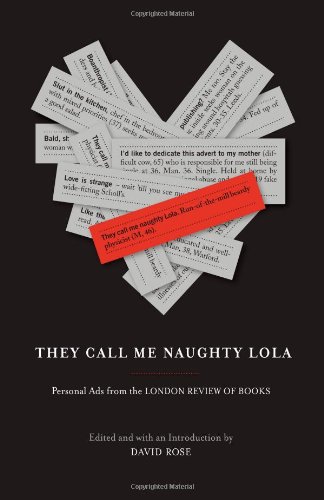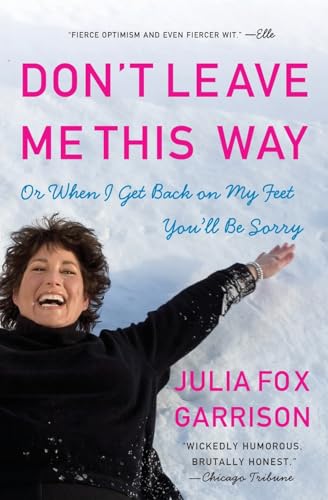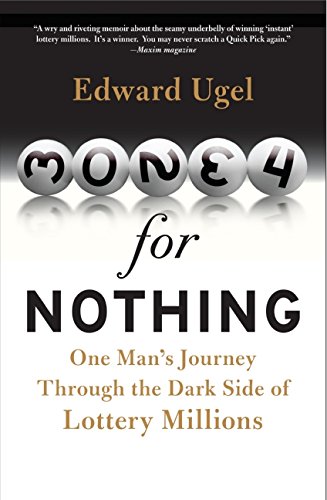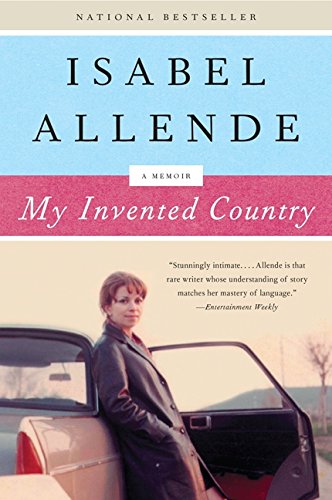Still more nonfiction that reads like fiction
Discover gripping nonfiction books that read like fiction! Explore our curated list of page-turning true stories, biographies, and narratives that captivate like novels.

Book
They Call Me Naughty Lola
by David Rose
A collection of personal ads as published in the "London Review of Books" presents some of the lonely-hearts column's most biting and erudite entries, in which hopefuls abandoned both positivism and false advertising in their quests for desirable partners.


Book
Queen Isabella
by Alison Weir
In this vibrant biography, acclaimed author Alison Weir reexamines the life of Isabella of England, one of history’s most notorious and charismatic queens. Isabella arrived in London in 1308, the spirited twelve-year-old daughter of King Philip IV of France. Her marriage to the heir to England’s throne was designed to heal old political wounds between the two countries, and in the years that followed she became an important figure, a determined and clever woman whose influence would come to last centuries. Many myths and legends have been woven around Isabella’s story, but in this first full biography in more than 150 years, Alison Weir gives a groundbreaking new perspective.

Book
Money for Nothing
by Edward Ugel
A marketing expert who made an ethically questionable living by enabling naive lottery winners to convert their payout terms into less-valuable cash settlements reveals how many winners of the lottery find themselves worse off for their changed circumstances.

Book
A Three Dog Life
by Abigail Thomas
Author Abigail Thomas shares the story of how she started a new life after an accident left her husband brain damaged and institutionalized.

Book
The Innocent Man
by John Grisham
Presents the real-life case of Ron Williamson, a mentally ill former baseball player who was wrongfully convicted and sentenced to death for the 1982 murder of a 21-year-old woman in his Oklahoma hometown.


Book
Don't Let's Go to the Dogs Tonight
by Alexandra Fuller
NEW YORK TIMES BESTSELLER • A worthy heir to Isak Dinesen and Beryl Markham, Alexandra Fuller shares visceral memories of her childhood in Africa, and of her headstrong, unforgettable mother. “This is not a book you read just once, but a tale of terrible beauty to get lost in over and over.”—Newsweek “By turns mischievous and openhearted, earthy and soaring . . . hair-raising, horrific, and thrilling.”—The New Yorker Though it is a diary of an unruly life in an often inhospitable place, Don’t Let’s Go to the Dogs Tonight is suffused with Fuller’s endearing ability to find laughter, even when there is little to celebrate. Fuller’s debut is unsentimental and unflinching but always captivating. In wry and sometimes hilarious prose, she stares down disaster and looks back with rage and love at the life of an extraordinary family in an extraordinary time. From 1972 to 1990, Alexandra Fuller—known to friends and family as Bobo—grew up on several farms in southern and central Africa. Her father joined up on the side of the white government in the Rhodesian civil war, and was often away fighting against the powerful black guerilla factions. Her mother, in turn, flung herself at their African life and its rugged farm work with the same passion and maniacal energy she brought to everything else. Though she loved her children, she was no hand-holder and had little tolerance for neediness. She nurtured her daughters in other ways: She taught them, by example, to be resilient and self-sufficient, to have strong wills and strong opinions, and to embrace life wholeheartedly, despite and because of difficult circumstances. And she instilled in Bobo, particularly, a love of reading and of storytelling that proved to be her salvation. Alexandra Fuller writes poignantly about a girl becoming a woman and a writer against a backdrop of unrest, not just in her country but in her home. But Don’t Let’s Go to the Dogs Tonight is more than a survivor’s story. It is the story of one woman’s unbreakable bond with a continent and the people who inhabit it, a portrait lovingly realized and deeply felt. Praise for Don’t Let’s Go to the Dogs Tonight “Riveting . . . [full of] humor and compassion.”—O: The Oprah Magazine “The incredible story of an incredible childhood.”—The Providence Journal

Book
A Beautiful Mind
by Sylvia Nasar
A biography of John Forbes Nash, Jr., Winner of the Nobel Prize in Economics, 1994.

Book
A Venetian Affair
by Andrea Di Robilant
In the waning days of Venice’s glory in the mid-1700s, Andrea Memmo was scion to one the city’s oldest patrician families. At the age of twenty-four he fell passionately in love with sixteen-year-old Giustiniana Wynne, the beautiful, illegitimate daughter of a Venetian mother and British father. Because of their dramatically different positions in society, they could not marry. And Giustiniana’s mother, afraid that an affair would ruin her daughter’s chances to form a more suitable union, forbade them to see each other. Her prohibition only fueled their desire and so began their torrid, secret seven-year-affair, enlisting the aid of a few intimates and servants (willing to risk their own positions) to shuttle love letters back and forth and to help facilitate their clandestine meetings. Eventually, Giustiniana found herself pregnant and she turned for help to the infamous Casanova–himself infatuated with her. Two and half centuries later, the unbelievable story of this star-crossed couple is told in a breathtaking narrative, re-created in part from the passionate, clandestine letters Andrea and Giustiniana wrote to each other.

Book
Another Bullshit Night in Suck City: A Memoir
by Nick Flynn
In bold, dazzling prose, Flynn tells the story of two lives and the trajectory that led him and his father into a homeless shelter, onto Boston's streets, and finally to each other.

Book
Thunderstruck
by Erik Larson
A true story of love, murder, and the end of the world’s “great hush.” In Thunderstruck, Erik Larson tells the interwoven stories of two men—Hawley Crippen, a very unlikely murderer, and Guglielmo Marconi, the obsessive creator of a seemingly supernatural means of communication—whose lives intersect during one of the greatest criminal chases of all time. Set in Edwardian London and on the stormy coasts of Cornwall, Cape Cod, and Nova Scotia, Thunderstruck evokes the dynamism of those years when great shipping companies competed to build the biggest, fastest ocean liners; scientific advances dazzled the public with visions of a world transformed; and the rich outdid one another with ostentatious displays of wealth. Against this background, Marconi races against incredible odds and relentless skepticism to perfect his invention: the wireless, a prime catalyst for the emergence of the world we know today. Meanwhile, Crippen, “the kindest of men,” nearly commits the perfect murder. With his unparalleled narrative skills, Erik Larson guides us through a relentlessly suspenseful chase over the waters of the North Atlantic. Along the way, he tells of a sad and tragic love affair that was described on the front pages of newspapers around the world, a chief inspector who found himself strangely sympathetic to the killer and his lover, and a driven and compelling inventor who transformed the way we communicate.

Book
The Right Stuff
by Tom Wolfe
From "America's nerviest journalist" (Newsweek)--a breath-taking epic, a magnificent adventure story, and an investigation into the true heroism and courage of the first Americans to conquer space. "Tom Wolfe at his very best" (The New York Times Book Review)

Book
The Year of Magical Thinking
by Joan Didion
NEW YORK TIMES BESTSELLER • NATIONAL BOOK AWARD WINNER • From one of America’s iconic writers, a stunning book of electric honesty and passion that explores an intensely personal yet universal experience: a portrait of a marriage—and a life, in good times and bad—that will speak to anyone who has ever loved a husband or wife or child. One of The New York Times’s 100 Best Books of the 21st Century Several days before Christmas 2003, John Gregory Dunne and Joan Didion saw their only daughter, Quintana, fall ill with what seemed at first flu, then pneumonia, then complete septic shock. She was put into an induced coma and placed on life support. Days later—the night before New Year’s Eve—the Dunnes were just sitting down to dinner after visiting the hospital when John Gregory Dunne suffered a massive and fatal coronary. In a second, this close, symbiotic partnership of forty years was over. Four weeks later, their daughter pulled through. Two months after that, arriving at LAX, she collapsed and underwent six hours of brain surgery at UCLA Medical Center to relieve a massive hematoma. This powerful book is Didion’ s attempt to make sense of the “weeks and then months that cut loose any fixed idea I ever had about death, about illness ... about marriage and children and memory ... about the shallowness of sanity, about life itself.

Book
The Children of Henry VIII
by Alison Weir
“Fascinating . . . Alison Weir does full justice to the subject.”—The Philadelphia Inquirer At his death in 1547, King Henry VIII left four heirs to the English throne: his only son, the nine-year-old Prince Edward; the Lady Mary, the adult daughter of his first wife Katherine of Aragon; the Lady Elizabeth, the teenage daughter of his second wife Anne Boleyn; and his young great-niece, the Lady Jane Grey. In this riveting account Alison Weir paints a unique portrait of these extraordinary rulers, examining their intricate relationships to each other and to history. She traces the tumult that followed Henry's death, from the brief intrigue-filled reigns of the boy king Edward VI and the fragile Lady Jane Grey, to the savagery of "Bloody Mary," and finally the accession of the politically adroit Elizabeth I. As always, Weir offers a fresh perspective on a period that has spawned many of the most enduring myths in English history, combining the best of the historian's and the biographer's art. “Like anthropology, history and biography can demonstrate unfamiliar ways of feeling and being. Alison Weir's sympathetic collective biography, The Children of Henry VIII does just that, reminding us that human nature has changed--and for the better. . . . Weir imparts movement and coherence while re-creating the suspense her characters endured and the suffering they inflicted.”—The New York Times Book Review

Book
Borrowed Time
by Paul Monette
The first personal documentary about AIDS to be published, "Borrowed Time" remains as vividly detailed as the best novel and as lucidly observed as the fiercest journalism.

Book
My Invented Country
by Isabel Allende
Isabel Allende evokes the magnificent landscapes of her country; a charming, idiosyncratic Chilean people with a violent history and an indomitable spirit, and the politics, religion, myth, and magic of her homeland that she carries with her even today. The book circles around two life-changing moments. The assassination of her uncle Salvador Allende Gossens on September 11, 1973, sent her into exile and transformed her into a literary writer. And the terrorist attacks of September 11, 2001, on her adopted homeland, the United States, brought forth an overdue acknowledgment that Allende had indeed left home. My Invented Country, mimicking the workings of memory itself, ranges back and forth across that distance between past and present lives. It speaks compellingly to immigrants and to all of us who try to retain a coherent inner life in a world full of contradictions.

Book
Death Be Not Proud
by John J. Gunther
Johnny Gunther was only seventeen years old when he died of a brain tumor. During the months of his illness, everyone near him was unforgettably impressed by his level-headed courage, his wit and quiet friendliness, and, above all, his unfaltering patience through times of despair. This deeply moving book is a father's memoir of a brave, intelligent, and spirited boy.
